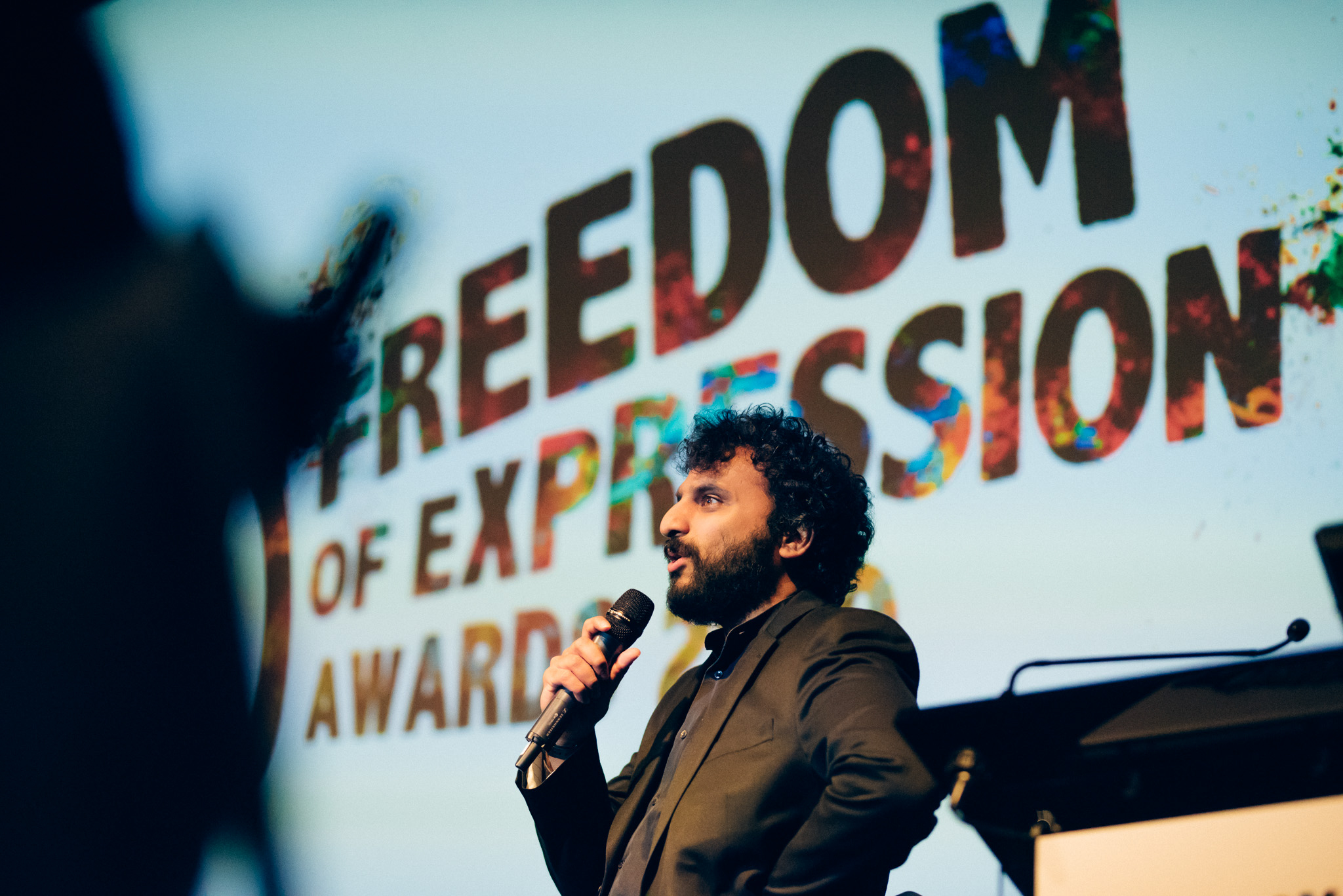ABOUT FREE EXPRESSION
THE RIGHT TO FREE EXPRESSION
Free expression is vital to humanity and the foundation of a free society. It creates the space for the exchange of ideas in the arts, literature, religion, academia, politics and science, and is essential for other rights like freedom of conscience. Without free expression, ideas cannot be tested. Without free expression, individuals cannot make informed decisions.
HOW IS IT PROTECTED?
The right to free expression is also contained in Article 10 of the European Convention on Human Rights: “Everyone has the right to freedom of expression. This right shall include freedom to hold opinions and to receive and impart information and ideas without interference by public authority and regardless of frontiers.” The right extends to views that are unpopular or even upsetting and offensive to others.
The convention, however, also says free expression must be balanced against other rights such as the right to privacy and, in certain cases, can be restricted.
WHERE DO WE DRAW THE LINE?
Index promotes and protects freedom of expression. As a general principle, we advocate for more speech, not less. We believe that free expression should only be limited in rare circumstances. One line is where the speech itself incites violence or where there is a direct and imminent threat of violence being committed as a result of the expression. Beyond that it can be restricted for specific reasons like national security, public safety or the protection of other essential rights. We carefully monitor that such bars have been met and are not instead being used to justify clampdowns without merit.
“Freedom of expression is not self-perpetuating, but rather has to be maintained through the constant vigilance of those who care about it.”
READ MORE ON FREEDOM OF EXPRESSION
STATEMENTS:
Be the first to hear from uncensored writers and artists
For over 50 years, Index has published work by censored writers and artists. Subscribe below to get regular updates from our incredible contributors.

